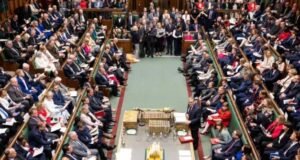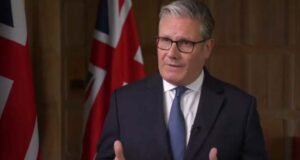
Committee seeks explanation of how practice complies with international law
Parliament’s human rights committee has asked the government to explain how the police and security services’ use of child spies is reconciled with international law.
In the first step of a potential investigation into child spies, the joint committee on human rights has asked the Home Office to explain how many juveniles have been recruited as so-called covert human intelligence sources (CHIS), their ages and the type of crimes they are being used to investigate.
The committee’s chair, Harriet Harman, a Labour former solicitor general, wrote to Ben Wallace, the security minister, saying assurances he had so far given about the use of child spies had served only to deepen concern.
She said the police and intelligence agencies needed to “strike an appropriate balance between preventing wrongdoing and ensuring that those involved in assignments are given appropriate protections”.
Human rights groups and politicians responded with shock last month after the Guardian reported that the Home Office believed child spies could be of use during investigations into terrorists, gangs, drug trafficking and even child sexual exploitation.
The Home Office claimed juvenile CHIS could offer “unique access to information” on such cases, after a Lords committee questioned an attempt to amend delegated legislation that would give agencies more power to deploy them. The committee established that some of the spies were aged under 16.
The orders to amend the Regulation of Investigatory Powers Act 2000 came into force on 20 July. They broadened the range of appropriate adults who must accompany under-16s to meetings with handlers and extended the time that child spies could be used without reauthorisation, from one month to four.
In her letter, sent on Thursday, Harman asked Wallace to explain how the juvenile CHIS regime meets the UK’s obligation under article 3 of the UN convention of the rights of the child. “The welfare of the child must be a primary consideration, as stipulated by the UNCRC, but we have insufficient information to determine whether this is ensured,” Harman said.
“We understand that most of the children who undertake assignments are already involved in the criminal world. Whilst we recognise that the situations can be complex, we would highlight one aspect of concern, namely that these children are being asked to remain in situations that can perpetuate existing harm.”
Brian Paddick, the Liberal Democrat peer, has tabled a motion of regret in the Lords over the use of child spies, which he expects will be scheduled for October. He had broadly similar concerns to those expressed by Harman, and pointed to a recent change in the law that now means any criminal suspect under the age of 18 is treated as a child and must have an appropriate adult present during questioning.
Lord Paddick, a former senior officer in the Metropolitan police, said he had previously been aware of the use of child spies but had no direct experience of their use and had not realised the potential for a breach in children’s rights under international law.
Asked whether he knew what such sources were used for, Paddick said: “I didn’t know directly – I could guess – but in my day it would have been around street robbery. Probably not county lines, [which] didn’t exist then; even gangs were not the problem that they are now.”
Paddick said he was particularly worried about the potential for using child spies in terrorism investigations, one of the areas highlighted by Wallace’s response to questions about the practice.
“There’s a lot of questions that need answering,” Paddick said. “It needs wider public discussion.”
Don't Miss
- Tk 26 lakh crore looted in name of development: Jamaat Ameer
- No election bid for ICT convicts: Attorney General
- One killed, 11 injured in Sylhet road mishap
- Bangladesh rout Turkmenistan 7-0 to seal spot in AFC Women’s Asian Cup
- Government funding supports borough-wide resurfacing to extend road life and cut carbon emissions
 Weekly Bangla Mirror | Bangla Mirror, Bangladeshi news in UK, bangla mirror news
Weekly Bangla Mirror | Bangla Mirror, Bangladeshi news in UK, bangla mirror news







